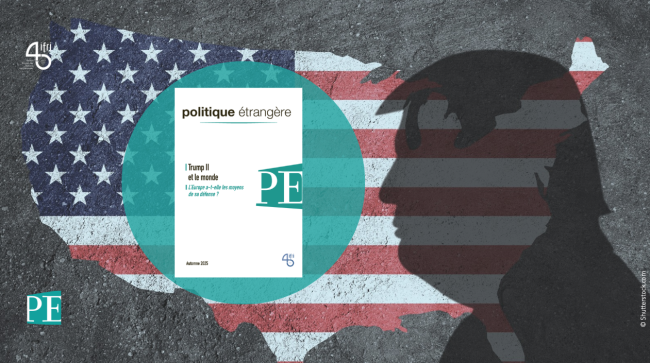États-Unis : les nominations à la Cour suprême, enjeu des élections de 2016
With the death of Justice Antonin Scalia on February 13, 2016, the Supreme Court of the United States lost a beacon of conservative thought and one of the most influential American jurists of the last thirty years. The question of his replacement immediately became an issue as the United States looks forward to the presidential election in November. While past nominations to the Supreme Court have been relatively uncontentious, nominations today are affected by the polarization of American politics.
At the forefront of the debate is a highly politicized struggle between President Obama, who proposed judge Merrick Garland, a rather centrist candidate, and the Republican camp, which contends that a president at the end of his term of office should not appoint a new Justice to the court and thus refuses to even hold hearings for the nominee, let alone an up and down vote.
In addition to the vacancy caused by Scalia's death, four other current judges are likely nearing the end of their tenures due to their advanced age. America's next president may therefore have the opportunity to nominate a number of new Justices. If the democratic candidate Hillary Clinton is elected, the ideological composition of the court, generally considered rather conservative since the appointment of Scalia in 1986 could become somewhat more liberal. In view of the impact of the Supreme Court's decisions on many aspects of Americans' everyday lives and on the balance of power in the country, this would have considerable consequences for decades to come.
This content is available in French: "Les Etats-Unis : les nominations à la Cour suprême, enjeu des élections de 2016."
Related centers and programs
Discover our other research centers and programsFind out more
Discover all our analysesBrazil One Year Away from the October 2026 General Elections
Brazil’s general elections will be held on October 4, 2026, to elect the president, vice-president, members of the National Congress, governors, deputy governors and state legislative assemblies. For the presidential and gubernatorial elections, a second round will be held on October 25 if no candidate obtains a majority of the votes in the first round.
Trump II: The Clash of Ideologies
The second Trump administration brings together a number of very different, even opposing, ideologies: far-right populism, the reactionary Christian right, paleolibertarianism, and technolibertarianism. The most visible measures taken since Donald Trump's return to the White House have been populist in nature, with the president's authority strengthened, checks and balances weakened, a form of identity politics embraced, and economic nationalism implemented.
Water in Mexico: an Emergency that Will Wait
Access to water is already and will become increasingly problematic for Mexican economic actors due to the progressive scarcity of the resource resulting from climate change, a geographical distribution that does not coincide with that of the population or economic activity, and management that has so far been far too lax.
Donald Trump v. the States: the Case of New York
While the disruptive policies of the second Trump administration are being implemented at the federal level and on the international stage, they are also being felt in the federal states and major cities across the country. In the spring of 2025, several cases involving the state and city of New York demonstrate that the president’s attacks on environmental protection, the separation of powers, freedom of speech, etc., are also being carried out at the local level.











